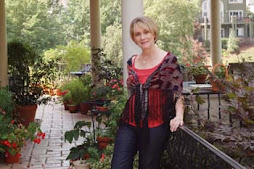
Female evangelist Juanita Bynum was interviewed this morning on Good Morning America. She was responding, and sometimes not responding, to questions posed about spousal abuse. Following an attack in a hotel parking lot, Dr. Bynum came out in the open to confess that she had been suffering repeated physical attacks by her husband.
Although I don’t use this blog to focus on sensationalist’s news, it seems important to talk about ministry women and the things they hide for love. When we started our church, FCC, I was very lonely and knew that isolation wasn’t good for emotional health. We had moved away from Florida where I could go to lunch with a writer friend whenever I needed to step out of the role of pastor’s wife and just be myself. I found an online group of pastor’s wives that were posting stories that sent chills as I read. One woman told of how her pastor husband had moved into the basement of their home and moved in a woman from their church to serve him as his lover. He threatened his wife telling her that she had to keep up the front for him or else suffer the humiliation of exposure. Another woman was suffering verbal abuse from her husband’s congregation to which he responded by telling her that she just had to suck it up; don’t rock the boat, he told her. Account after account, I read until I couldn’t read any more. There were thousands of them.
I posted a thought about spiritual abuse and how Satan wants us all timid and cowering. And what kind of model is it for a Christian leader to roll over and play dead to a group of people who obviously are not seekers of sound godly counsel? I was overwhelmed by women who emailing me for advice and asking me what they could do.
Juanita Bynum is being criticized for living a lie. But coming out in the open is not living a lie. That is the kind of response that will send more ministry wives into hiding when what they need to do is to stand up and refuse to be abused any more. Trusting God for outcomes when we choose to do the right yet hard thing is an apostolic practice—meaning that the apostles made it a part of their daily practice. It takes a lot of character to face public ridicule while reaching for the high road.
Randy and I once helped a battered wife pack up and get out of town while the husband was swearing and threatening us as well as the police who stood vigil. It wasn’t something that seminary prepared us for, but there are times when you just have to stand when all else fails; to stand when a controlling power is breathing threats over your life. Just stand.
Although I don’t use this blog to focus on sensationalist’s news, it seems important to talk about ministry women and the things they hide for love. When we started our church, FCC, I was very lonely and knew that isolation wasn’t good for emotional health. We had moved away from Florida where I could go to lunch with a writer friend whenever I needed to step out of the role of pastor’s wife and just be myself. I found an online group of pastor’s wives that were posting stories that sent chills as I read. One woman told of how her pastor husband had moved into the basement of their home and moved in a woman from their church to serve him as his lover. He threatened his wife telling her that she had to keep up the front for him or else suffer the humiliation of exposure. Another woman was suffering verbal abuse from her husband’s congregation to which he responded by telling her that she just had to suck it up; don’t rock the boat, he told her. Account after account, I read until I couldn’t read any more. There were thousands of them.
I posted a thought about spiritual abuse and how Satan wants us all timid and cowering. And what kind of model is it for a Christian leader to roll over and play dead to a group of people who obviously are not seekers of sound godly counsel? I was overwhelmed by women who emailing me for advice and asking me what they could do.
Juanita Bynum is being criticized for living a lie. But coming out in the open is not living a lie. That is the kind of response that will send more ministry wives into hiding when what they need to do is to stand up and refuse to be abused any more. Trusting God for outcomes when we choose to do the right yet hard thing is an apostolic practice—meaning that the apostles made it a part of their daily practice. It takes a lot of character to face public ridicule while reaching for the high road.
Randy and I once helped a battered wife pack up and get out of town while the husband was swearing and threatening us as well as the police who stood vigil. It wasn’t something that seminary prepared us for, but there are times when you just have to stand when all else fails; to stand when a controlling power is breathing threats over your life. Just stand.

















